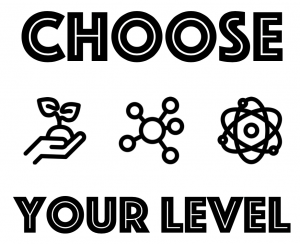Difference between revisions of "Staying on top of research"
Lisagotzian (talk | contribs) |
Lisagotzian (talk | contribs) |
||
| Line 1: | Line 1: | ||
== Why & When == | == Why & When == | ||
| + | As an aspiring scientist, it is important to follow the current discussions in science. Staying on top of research is an essential skill that will enhance your science game significantly. Because that's the gist: There is more to science than searching for terms in Google Scholar. | ||
| + | Ultimately, you want to: | ||
| + | * identify '''key papers''' that are relevant for your research and read the papers that cite these key papers | ||
| + | * identify '''key authors''' in your field and follow whatever they publish next | ||
| + | * identify '''key journals''' in your field that have a high rating (so are being cited frequently) and therefore publish the most important news in your field | ||
| − | == | + | == Getting started == |
| + | === Choose your level === | ||
| + | [[File:ChooseYourLevel.png|thumb]] | ||
| + | |||
| + | === The Beginner Level === | ||
| + | You have just started out with your study program and want to understand research as such. You may have recently found out that journals exist and that journal ratings are a thing. On this level, you could follow: | ||
| + | * The journals "Nature" and "Science" are the "BILD" newspaper of science. They tend to have rather sensational titles, feature mostly short papers but also report the main news. (Now that I think about it, they are probably a bit better than BILD, but that's just on the side.) | ||
| + | * ... | ||
| + | |||
| + | === The Advanced Level === | ||
| + | You've understood the game of science and have written your first few papers for your degree program. This means you levelled up! Now it's time to follow some general resources in your field. | ||
| + | |||
| + | Eg for Machine Learning, that's: | ||
| + | In Machine Learning, conferences also play a major role | ||
| + | === The Expert Level === | ||
| + | At this stage, you know where you are going in science and have identified your research niche. You want to become an expert in that niche? Well, you need to stay uptodate on a granular level: | ||
| − | == | + | |
| + | === Choose your weapon === | ||
| + | Different tools allow you to follow | ||
Visualping | Visualping | ||
Feedly | Feedly | ||
| Line 18: | Line 40: | ||
Do it as a table? | Do it as a table? | ||
| − | |||
| − | |||
| − | |||
| − | |||
| − | |||
| − | |||
| − | |||
| − | |||
| − | |||
| − | |||
| − | |||
| − | |||
| − | |||
== Links & Further reading == | == Links & Further reading == | ||
Revision as of 08:32, 24 July 2020
Why & When
As an aspiring scientist, it is important to follow the current discussions in science. Staying on top of research is an essential skill that will enhance your science game significantly. Because that's the gist: There is more to science than searching for terms in Google Scholar.
Ultimately, you want to:
- identify key papers that are relevant for your research and read the papers that cite these key papers
- identify key authors in your field and follow whatever they publish next
- identify key journals in your field that have a high rating (so are being cited frequently) and therefore publish the most important news in your field
Getting started
Choose your level
The Beginner Level
You have just started out with your study program and want to understand research as such. You may have recently found out that journals exist and that journal ratings are a thing. On this level, you could follow:
- The journals "Nature" and "Science" are the "BILD" newspaper of science. They tend to have rather sensational titles, feature mostly short papers but also report the main news. (Now that I think about it, they are probably a bit better than BILD, but that's just on the side.)
- ...
The Advanced Level
You've understood the game of science and have written your first few papers for your degree program. This means you levelled up! Now it's time to follow some general resources in your field.
Eg for Machine Learning, that's: In Machine Learning, conferences also play a major role
The Expert Level
At this stage, you know where you are going in science and have identified your research niche. You want to become an expert in that niche? Well, you need to stay uptodate on a granular level:
Choose your weapon
Different tools allow you to follow Visualping Feedly
Identify key papers that are relevant for your research and follow it on Google Scholar so every time someone cites it, you'll get an email alert
Identify key authors in your field and follow them on Google Scholar or track changes on their websites
Identify key journals in your field (ask your professor for journals to follow) and follow them on feedly and/or Google Scholar
Do it as a table?
Links & Further reading
Icons are designed by lagotdesign and taken from: https://thenounproject.com/lagotdesign/collection/lagotline-science/
